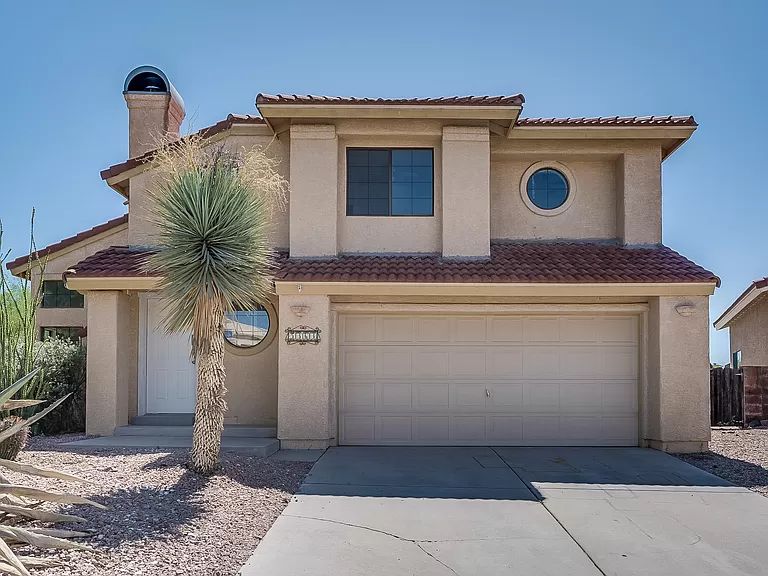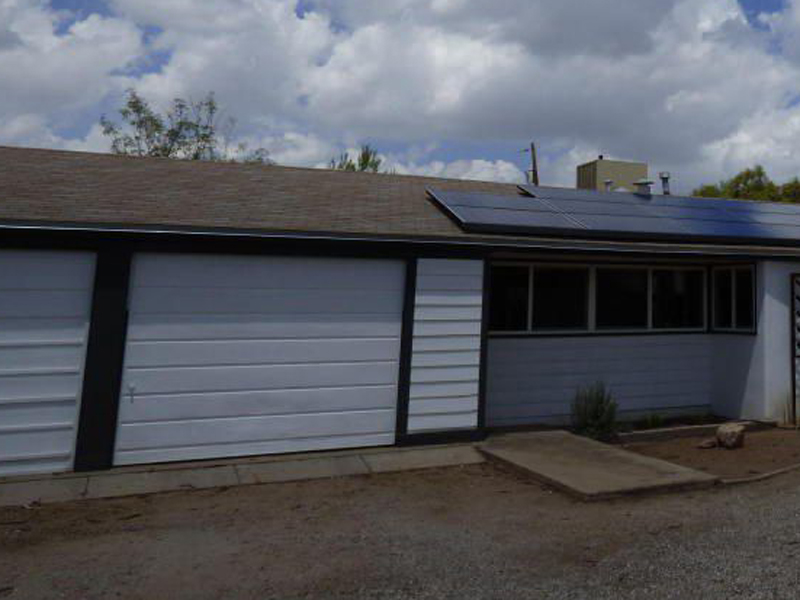Is Your Garage Door Stuck? Here's What to Do First
When your garage door won't open, start with these necessary safety and security checks before attempting any repairs. First, ensure no person is standing near the door which cars are clear of the opening. Try to find evident indications of damages like damaged panels, curved tracks, or hanging cable televisions. If you see a snapped spring or badly damaged elements, quit quickly and call an expert—-- these fixings require specific devices and knowledge to take care of securely.

Check These 6 Points Prior To Calling a Specialist
Before presuming you need expensive fixings, go through this quick diagnostic checklist that resolves most garage door problems:
-
Source of power: Confirm the opener is plugged in and the electrical outlet is working
-
Remote batteries: Replace dead batteries in your remote control
-
Hands-on lock: Examine if somebody unintentionally involved the hands-on lock
-
Obstructions: Seek debris blocking the door's path or sensing units
-
Emergency situation release: Make certain the red emergency cable hasn't been pulled
-
Circuit breaker: Validate the garage circuit hasn't tripped
These basic checks deal with approximately 70% of garage door concerns without requiring specialist treatment.
10 Common Factors Your Garage Door Will Not Open
Recognizing why your garage door opener isn't functioning helps you pick the ideal service. Below are one of the most constant causes homeowners encounter:
Dead remote batteries represent the simplest repair—-- when batteries die, the remote can not send signals to the opener. Power blackouts or tripped breakers reduced power to the motor. Damaged springtimes protect against the door from raising correctly and require instant expert focus. Sensing unit misalignment reasons safety and security systems to obstruct door operation. Track obstructions quit rollers from moving efficiently. Motor overload triggers automatic shutoffs when the opener detects resistance. Restriction button problems perplex the opener about door placement. Cord damages interferes with the lifting device. Weather-related issues impact door activity throughout severe temperature levels. Component wear from age slowly reduces system efficiency.
Issue # 1: Dead Remote Batteries
When your wall switch functions but your remote doesn't, dead batteries are generally the culprit. Most garage door remotes utilize either 3-volt lithium or 12-volt alkaline batteries. Remove the back cover of your remote and examine the battery type. Replace with fresh batteries and test the remote. If it still does not work, you may need to reprogram it to your opener. Consult your opener's manual for specific reprogramming directions, as the process differs by manufacturer.
Trouble # 2: Power Supply Issues
Garage door power issues usually come from loosened links or stumbled circuits. Check that the opener is strongly linked into its outlet—-- vibration can loosen up connections gradually. Examine the outlet with an additional device to confirm it's working. Analyze your home's breaker box for tripped circuits, specifically if you've experienced tornados or power variations. GFCI electrical outlets might have tripped and require resetting. If the opener has power but won't react, the concern most likely lies in other places in the system.
Issue # 3: Broken or Damaged Springs
Busted garage door springtimes are among one of the most hazardous parts to take care of. If you listen to a loud bang from your garage or discover the door really feels exceptionally heavy when trying to raise by hand, a spring has actually most likely snapped. Torsion springtimes run flat above the door, while extension springs remain on either side. Never attempt springtime repair work yourself—-- these components store significant stress that can trigger serious injury or fatality. Specialist substitute generally sets you back $150-$300 however guarantees your safety.
Trouble # 4: Blocked Security Sensors
Modern garage doors include safety sensing units that stop closure when objects are detected. These sensors can quit the door from opening if they're filthy, misaligned, or blocked by debris. Clean sensing unit lenses with a soft cloth and ensure absolutely nothing blocks the undetectable beam of light in between them. Check that sensors are appropriately straightened—-- the majority of have sign lights that show connection standing. Sensor problems frequently resolve with easy cleansing and change.
Trouble # 5: Track Obstructions or Damages
Garage door tracks guide rollers as the door moves up and down. Dust, debris, old grease, or small items can jam the system. Evaluate tracks visually and eliminate any obstructions with a brush or fabric. Try to find dents, flexes, or bending that might hamper smooth procedure. Small track modifications are feasible for helpful homeowners, but substantial damages needs specialist repair service to stop more problems or security dangers.
Issue # 6: Garage Door Opener Motor Issues
When the garage door electric motor runs however the door doesn't relocate, numerous problems could be liable. The motor might be strained and shutting off as a safety measure. Equipment wear, especially in older devices, can stop appropriate procedure. Chain or belt drive problems affect power transmission. If you hear unusual grinding, clicking, or humming sounds, stop making use of the opener quickly. Motor repairs typically set you back more than replacement, specifically for devices over 10 years old.
Detailed DIY Troubleshooting Overview
Follow this systematic strategy to garage door fixing while focusing on safety throughout the process:
Step 1: Examine the wall surface switch first. If it functions but the remote does not, focus on remote concerns. If neither works, check power supply.
Step 2: Analyze the hand-operated launch cord. If it's been drawn, the opener is disengaged from the door. Push the trolley back to reconnect.
Action 3: Manually check the door by disengaging the opener and trying to raise the door by hand. It should relocate efficiently and stay in location when half-open.
Tip 4: Inspect noticeable parts for damages, paying unique attention to springs, cords, and tracks.
Step 5: Examine all safety functions consisting of sensing units, limit switches, and auto-reverse functions.
Action 6: Test different controls (remote, wall surface button, keypad) to separate the problem source.
Always put on safety glasses and work handwear covers when doing inspections, and never effort repair services on springs or high-tension elements.
When to Call an Expert vs. DIY Solutions

Recognizing when to call a garage door professional versus attempting DIY fixings secures both your security and your pocketbook. Deal with these problems on your own: dead remote batteries, power supply problems, small track cleaning, sensor cleaning and placement, and basic lubrication.
Never ever try these fixings on your own: spring replacement or modification, cable fixings, major track realignment, electric wiring concerns, opener electric motor substitute, or any kind quick fixes for garage door not closing properly of repair entailing high-tension elements. Specialist technicians have specialized devices, training, and insurance coverage to take care of harmful repair work safely.
Consider fixing costs versus replacement costs, especially for doors over 15 years old. Modern garage doors supply better security functions, power performance, and integrity than older versions.
Emergency Garage Door Solutions
When you're stuck to a garage door that won't open up and require prompt access, comply with these emergency treatments:
Guidebook Operation: Pull the red emergency launch cord to disengage the opener. This allows hands-on procedure yet calls for proper technique to avoid injury. Raise the door gradually and uniformly, utilizing leg muscular tissues as opposed to your back. A lot of residential doors evaluate 100-150 pounds, making them manageable for most adults.
Temporary Solutions: If the door opens manually however won't stay up, prop it open with sawhorses or clamps—-- never utilize your body or vehicles as assistances. For doors that will not close completely, guarantee the opening is secured if you must leave.
Emergency situation Solution: Several garage door business supply 24/7 emergency service for circumstances including safety concerns, trapped lorries, or total system failings. While a lot more pricey than regular solution calls, emergency repairs supply instant options when needed most.
Safety and security Warning: What NOT to Do
Garage door security needs recognizing hazardous repair work that need to never ever be attempted by property owners:
Never ever try to fix springtimes—-- they store enough energy to cause deadly injuries when they break or are incorrectly handled. Do not compel a stuck door—-- this can damage the opener, tracks, or door panels, producing much more pricey troubles. Stay clear of bypassing security attributes—-- sensors and auto-reverse devices stop serious injuries and property damages.
Don't neglect strange sounds—-- grinding, scraping, or banging noises indicate issues that get worse gradually. Never ever utilize the door if cables are frayed or broken—-- the door can drop suddenly. Do not attempt electrical repair work unless you're a certified electrical expert—-- garage door openers make use of both 120V house current and low-voltage control circuits.

Preventive Upkeep to Prevent Future Troubles
Routine garage door upkeep avoids most common problems and extends system life-span significantly:
Month-to-month Jobs: Aesthetic examination of all parts, examining auto-reverse safety functions, checking and tightening up equipment, and cleansing tracks and sensing units.
Quarterly Tasks: Lubricating all moving parts with proper garage door lube, screening manual procedure, and checking climate securing.
Annual Tasks: Specialist assessment and tune-up, spring modification if required, and opener maintenance including belt or chain modification.
Seasonal Jobs: Getting ready for weather condition extremes, examining insulation, and adjusting opener setups for temperature modifications.
Consistent maintenance costs much less than emergency repairs and guarantees reputable operation year-round.
Garage Door Won't Open Up FAQs
Why won't my garage door open with the remote yet works with the wall button?
This usually indicates dead remote batteries, signal interference, or the requirement to reprogram the remote. Check batteries first, after that consult your opener manual for reprogramming instructions.
Can I by hand open my garage door if the power is out?
Yes, draw the red emergency situation release cable to disengage the opener, after that lift the door by hand. Be gotten ready for the door's complete weight and lift with correct method to stay clear of injury.
How do I understand if my garage door springtime is damaged?
Signs include a loud bang from the garage, the door feeling exceptionally hefty when lifting by hand, visible voids in the springtime coils, or the door just opening a few inches prior to stopping.
Is it safe to utilize my garage door if it won't open up all the way?
No, partial operation suggests mechanical problems that can worsen all of a sudden. Stop using the door and have it examined by an expert to avoid more damage or injury.
What should I do if my garage door opens but will not shut?
Check safety sensing units for obstructions or misalignment, examine the tracks for debris, and evaluate the auto-reverse function. If these do not resolve the issue, speak with an expert.
Just how much does it set you back to repair a garage door that will not open up?
Costs vary extensively relying on the trouble: battery substitute ($5-$10), professional medical diagnosis ($50-$100), spring substitute ($150-$300), or opener substitute ($200-$500).
Can weather affect my garage door's ability to open up?
Yes, extreme cold can thicken lubricants and influence steel components, while warmth can trigger growth concerns. Many problems deal with as temperature levels normalize, but relentless problems might require specialist attention.
Why does my garage door open a couple of inches then stop?
This typically suggests damaged springs, restriction switch issues, or track obstructions. The opener's safety and security features quit operation when resistance is identified, preventing damages to the motor or door.
Get Professional Assist for Complex Problems
When DIY repairing doesn't settle your garage door troubles, professional specialists offer the expertise and tools needed for risk-free, long-term fixings. Certified professionals detect concerns accurately, use manufacturer-approved components, and supply warranties on their job.
Expert services include: extensive system assessments, springtime and cord substitute, opener repair service and replacement, track placement and replacement, electric troubleshooting, and emergency situation service telephone calls.
What to expect: upfront rates, licensed and insured specialists, same-day service for many fixings, and follow-up upkeep suggestions.
The majority of garage door companies supply totally free estimates for major repair services and can offer immediate services for urgent problems impacting home safety and security or vehicle gain access to.
Getting Your Garage Door Working Again
A garage door that will not open up doesn't have to wreck your day or break your budget. Begin with simple troubleshooting steps like examining power, changing batteries, and analyzing for obvious blockages. Numerous issues have quick DIY options that recover normal operation within minutes.
Nonetheless, acknowledge when expert assistance is required—-- particularly for spring-related concerns, electric issues, or complicated mechanical failures. Attempting unsafe fixings on your own risks severe injury and often develops a lot more expensive issues.
Routine upkeep prevents most garage door concerns and makes certain reputable procedure for many years ahead. When problems do take place, address them immediately to stay clear of even more expensive fixings and keep your home's safety and comfort. Whether you require a simple battery substitute or full system overhaul, remedies exist to obtain your garage door working smoothly once again.
Eddie's Garage Door Service
5505 N La Canada Dr, Tucson, AZ 85704
(520) 965-8259